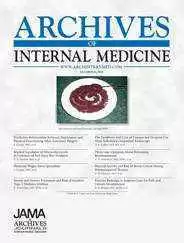Celiac.com 12/23/2009 - One of the main and largely unrecognized health problems facing the Western world and people on diets of highly refined, processed and starchy foods, which are often low in or devoid of dietary fiber, is that of constipation. This is a particular issue with Celiacs where the gluten-free flours they use are largely starch based and often low in protein and dietary fiber. Unfortunately, we live in a world where it is often considered normal and acceptable to empty the bowels perhaps 2 -3 times a week, rather than the more desirable 2 – 3 times per day.
What are the difficulties in this you may ask?
Firstly the lymphatic system drains through the bowels and if the bowels are clogged and constipated the lymph system, which is a major part of the human body’s excretory system, does not function properly. This means that instead of continuously draining, as it should, the lymph system becomes a long term storage system for the body’s waste matter when confronted with a constipated digestive system, which provides a home and breeding ground for bacteria and perhaps becoming a precursor for infection and many chronic health problems including cancer. Constipation also leads to dry and hard stools which are difficult to pass and may contribute to the development of hemorrhoids or “piles”, as they are commonly known, and possibly longer term issues leading to colon and rectal cancers. Constipation also leads to greatly increased and undesirable residence time for waste matter in the body which solidifies and putrifies in the process possibly contributing to various forms of gastric and bowel cancer.
Celiac.com Sponsor (A12):
Other parts of the body’s excretory systems including the sinuses; the lungs and the skin, the body’s largest excretory organ, can also become overloaded if the bowels and lymph system are not functioning correctly. Sinus overload can be reflected in having heavy mucus discharge via a cold or the flu, glandular fever and in nasal, eye and ear infections, from infected, stored mucus. Lung overload may be reflected by mucus discharges associated with a cold or influenza, pleurisy, pneumonia and various other forms of mucus containing fluid which may also become infected by hostile germs and bacteria. Skin overload can be reflected in rashes, eczema, psoriasis, measles, hives, shingles, chicken pox and the like: all symptoms of an acidic body condition and an overloaded elimination or excretory system. If the body cannot dispose of its waste matter by other means, it often resorts to throwing the waste matter out through the skin. Chronic fatigue syndrome is possibly another manifestation of this same issue.
Sadly, the vast majority of the human race, end their lives with all of their excretory organs, lungs and blood circulatory systems overloaded with stored waste matter with significantly shortened life expectancy and diminished quality of life as a result.
None of the latter problems have anything to do with or need to be part of the aging process. For example, I have a very spry, mentally alert 90 year old father, A blood group type, who still works on a daily basis, drives a car, is totally medication free, has no prostrate, heart or cancer problems and has a good head of hair; clear skin, eyes, arteries and lungs. He should be the model of normality. Sadly, he is not typical. How and why? A fairly spartan diet based mainly upon fruit and vegetables with very sparing consumption of meat, dairy products, fried foods, salt, sugar, animal fats, cakes, lollies, convenience foods and alcohol. He has never smoked. He drinks mainly water and fresh juice with fresh citrus juice first thing every morning. He eats slowly and chews his food thoroughly. He never overeats. He remains curious, physically active and engaged with the world. My paternal grandmother, Daisy, was still walking around without the aid of a stick at age 106 – 107 with all her faculties and complaining about all the other “old chooks” in the nursing home on their walking frames etc: many of them 40 years her junior. Adequate sleep and minimizing stress is also critical to maintaining good health.
Most of the chronic health problems facing our community are mainly unnecessary consequences of over indulgence and the accumulations of a lifetime’s bad habits and, in most instances, with a little care these habits are largely avoidable. Fevers and colds are natural processes. They are part of the body’s armoury of natural defense mechanisms for dealing with a cleansing crisis. All too often these and other natural processes are medically suppressed rather than being allowed to run their natural course. They are one of the body’s ways of saying it is overloaded with waste matter and that it needs a chance to deal with this problem. Antibiotics, taken orally, also tend to indiscriminately kill both good and bad gut bacteria often inadvertently disrupting the long term performance of the digestive system to the long term detriment of the patient’s health especially when no restorative probiotics are prescribed as part of the process: which is mainly the case.
How do we avoid these problems? By a host of small, simple and easily implemented strategies over a lifetime: by a little self discipline and the formulation of good eating and nutritional habits which enable our bodies to function effectively, naturally, healthily and sustainably for a lifetime, as they are intended to. Ill health is not our natural state but one we impose upon ourselves, or otherwise, through our dietary and lifestyle choices, both individually and collectively.







Recommended Comments